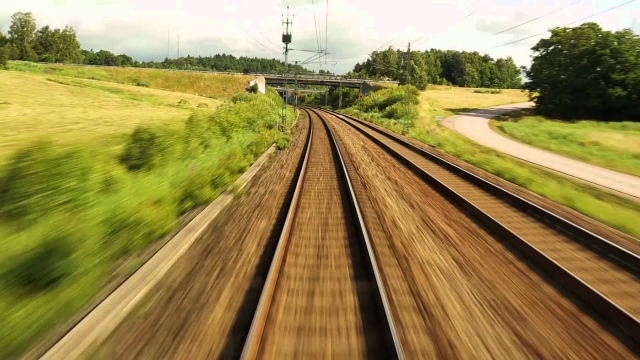Azerbaijan to Launch New Passenger Trains on the Baku-Tbilisi-Kars Railway
Azerbaijan is planning to launch new passenger trains on the newly opened $600 million railway route, which directly connects Turkey, Georgia and Azerbaijan.
The Azerbaijan news agency AzerNews has reported that the country has already announced new more than 30 passenger trains to be operate on the Baku-Tbilisi-Kars (BTK) railway route in the next year.
"Once commissioned, it will take just one day to get to Kars," The spokesman for the Azerbaijan Railways Nadir Azmammadov said to the AzerNews.
Azmammadov noted that ticket prices for this route are still to be determined, as that should be coordinated first with the governments of Turkey and Georgia.
Meanwhile, the BTK railway line is a regional railway link that will directly connect Kars in Turkey, Tbilisi in Georgia and Baku in Azerbaijan. The total estimated cost of the project is around $600 million. The Turkish segment will be 76km long while the Georgian railway line will be 29km long.
It is hoped that the railway line will improve trade and economic relations between Central Asia, Azerbaijan, Georgia and Iran, when connecting with Europe.
The construction of the new 105-kilometer branch of the railroad was inaugurated by the presidents of the three regions at Marabda, South Georgia on the 21st November 2007. However, on 8 August 2009, construction activities of the BTK railway line were suspended due to the Georgian-Ossetian conflict and environmental problems.
In February 2014, Azerbaijan's Transportation Minister, Ziya Mammadov, stated that the project would not be completed before the second half of 2015 and new sleeping coaches would not enter service until 2016-17.
The presidents of Azerbaijan, Georgia and Turkey signed the declaration on the Baku-Tbilisi-Kars railway connection on the 25th May 2005. The key reason for the agreement was the rejection of assistance by the EU and the US as the link bypassed Armenia.
It is believed that the BTK railway line will transport a million passengers and 6.5 million tons of cargo in its initial stage.
By 2030, it is expected to carry an estimated 17 million tons of cargo and approximately three million passengers.












